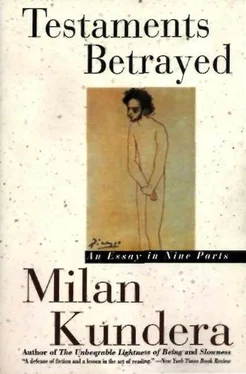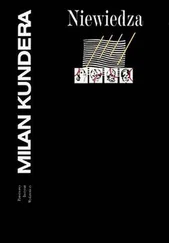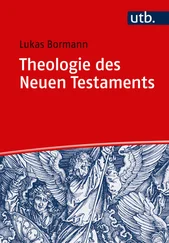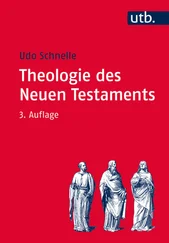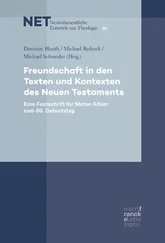PART TWO. The Castrating Shadow of Saint Garta
The image of Kafka that is widely held these days comes originally from a novel. Max Brod wrote it immediately after Kafka's death and published it in 1926. Savor the title: The Enchanted Kingdom of Love (Zauberreich der Liebe). This key-novel is a roman a clef, a novel with a key. Its protagonist, a German writer in Prague named Nowy, is recognizably a flattering self-portrait of Brod (adored by women, envied by the literati). Nowy/Brod cuckolds a man who, by very elaborate wicked schemes, gets him sent to prison for four years. We are instantly plunged into a story cobbled together by the most improbable coincidences (characters meet by complete chance on a ship out at sea, on a Haifa street, on a street in Vienna), we witness the struggle between the good (Nowy and his mistress) and the evil (the cuckold, so vulgar that he fully deserves his horns, and a literary critic who systematically pans Nowy's wonderful books), we are pained by melodramatic reversals (the heroine kills herself because she cannot bear life caught between the cuckold and the cuckolder), we admire the sensitive soul of Nowy/Brod, who swoons regularly.
This novel would have been forgotten before it was written if not for the character Carta. Because Garta, Nowy's close friend, is a portrait of Kafka. Without this key, the character would be the most uninteresting in the entire history of literature; he is described as a "saint of our time," but even about the ministry of his saintliness we don't learn much, except that from time to time, when Nowy/Brod is having love troubles, he seeks advice from his friend, which the friend, as a saint with no such experience, is incapable of giving him.
What a marvelous paradox: the whole image of Kafka and the whole posthumous fate of his work were first conceived and laid out in this simpleminded novel, this garbage, this cartoon-novel concoction, which, aesthetically, stands at exactly the opposite pole from Kafka's art.
Some quotations from the novel: Garta "was a saint of our time, a veritable saint." "Perhaps his best quality was his remaining so independent and free, so saintly rational in the face of all mythologies, even though deep down he was akin to them and nearly a mythological figure himself." "He wanted to live in perfect
purity-rather, he could not do otherwise…"
The words "saint," "saintly," "mythological," "purity," are not a matter of rhetoric; they are to be taken literally: "Of all the sages and prophets who have walked the earth, he was the quietest… Perhaps he lacked one thing: self-confidence. With it, he would have become a guide to humanity. No, he was not a guide. He spoke neither to the people nor to disciples, like the Buddha, Jesus, Moses. He did not speak that way. He remained reticent. Was that because he saw more deeply into the great mystery than those three? Because what he undertook was more difficult yet than what the Buddha intended? Because if he succeeded, it would be conclusive?"
And again: "All the founders of religions were sure of themselves. One of them, however-he may well be the most sincere of all-Lao-tze, retreated into the shadows. Carta certainly did the same."
Carta is presented as someone who writes. Nowy "had agreed to be Garta's literary executor-Garta had asked him to do this, but with the unusual condition that everything be destroyed." Nowy "sensed the reason for that last wish. Garta was not announcing a new religion; he wanted only to live his faith. … He required the ultimate effort of himself; as he had not succeeded, his writings (mere rungs to help him climb to the heights) had no value for him."
Still, Nowy/Brod did not want to obey his friend's wish, because in his view, Carta's writings, "even as attempts, as mere sketches, bring to wandering humanity a presentiment of something irreplaceable."
Yes, it's all there.
Were it not for Brod, we would not even know Kafka's name today. Right after his friend's death, Brod saw to the publication of his three novels. No reaction. So he realized that, to establish Kafka's work, he would have to undertake a real and long war. Establishing a body of work means presenting it, interpreting it. Brod opened a veritable artillery attack: prefaces: for The Trial (1925), for The Castle (1926), for Amerika (1927), for "Description of a Struggle" (1936), for the diaries and letters (1937), for the stories (1946); for the Conversations by Gustav Janouch (1952); then the dramatizations: of The Castle (1953) and Amerika (1957); but above all, four important books of interpretation (take good note of the titles!): Franz Kafka: A Biography (1937), The Faith and Teachings of Franz Kafka (1946), Franz Kafka, He Who Shows the Way (1951), and Despair and Salvation in the Work of Franz Kafka (1959).
Through all of these texts, the image outlined in The Enchanted Kingdom of Love is confirmed and developed: above all, Kafka is primarily the religious thinker, der religiose Denker. True, he "never systematically set out his philosophy and his religious world view. Nonetheless, we can deduce rather clear fundamentals from his work, from his aphorisms especially but also from his poetry, his letters, his diaries, and then also from his way of life (from that above all)…"
Further on: Kafka's true importance cannot be understood "unless two currents in his work are distinguished: (1) the aphorisms, (2) the narrative writings (novels, stories, fragments).
"In his aphorisms Kafka expounds the positive word [das positive Wort] that he gives to mankind, a faith, a stern call for each individual to change his own life."
In his novels and stories, "he describes the horrible punishments in store for those who do not wish to hear the word [das Wort] and do not follow the path of righteousness."
Note the hierarchy: at the top: Kafka's life as an example to be followed; in the middle: the aphorisms, that is, all the meditative "philosophical" passages in his diaries; at the bottom: the narrative works.
Brod was a brilliant intellectual with exceptional energy; a generous man willing to do battle for others; his attachment to Kafka was warm and disinterested. The only problem was his artistic orientation: a man of ideas, he knew nothing of the passion for form; his novels (he wrote twenty of them) are sadly conventional; and above all: he understood nothing at all about modern art.
Why, despite all this, was Kafka so fond of him? What about you-do you stop being fond of your best friend because he has a compulsion to write bad verse?
But the man who writes bad verse turns dangerous once he starts to publish the work of his poet friend. Suppose the most influential commentator on Picasso were a painter who could not even manage to understand the impressionists. What would he say about Picasso's paintings? Probably the same thing Brod said about Kafka's novels: that they describe "the horrible punishments in store for those who… do not follow the path of righteousness."
Max Brod created the image of Kafka and that of his work; he created Kafkology at the same time. The Kafkologists may distance themselves from their founding father, but they never leave the terrain he mapped out for them. Despite the astronomical number of its texts, Kafkology goes on elaborating infinite variants on the same discussion, the same speculation, which, increasingly unconnected to Kafka's work, feeds only on itself. Through innumerable prefaces, postfaces, notes, biographies and monographs, university lectures and dissertations, Kafkology produces and sustains its own image of Kafka, to the point where the author whom readers know by the name Kafka is no longer Kafka but the Kafkologized Kafka.
Читать дальше
